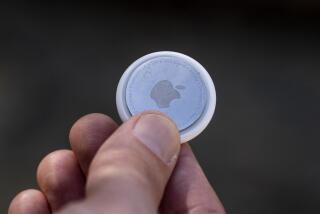NSA surveillance disclosure could affect court cases
When federal officials recently confirmed the existence of a massive National Security Agency program that has been collecting Americans’ phone data for years, they argued it was needed to fight terrorism.
But that acknowledgment has opened potentially seismic rifts in the nation’s legal system, allowing defendants to argue that the government is holding a massive trove of evidence that is necessary to their cases — the same kind of evidence that, when it’s collected by police, is commonly turned over to defendants.
As a result, one south Florida case has become a surprise center of focus in the debate over secret government surveillance. It may prompt a midtrial showdown with the federal government that would be closely watched by privacy advocates and national security officials alike.
“This falls into the category of ‘you have to be careful of what you ask for,’” Jonathan Turley, a professor at George Washington University Law School, said of the NSA’s phone-monitoring program. “The government asked for complete storage of data for all citizens, and they got it. Now they’re in possession of a unique resource of information.”
Since the end of May, Terrance Brown has been on trial on suspicion of masterminding a Brinks armored-truck robbery in Florida that left a man dead in October 2010.
About a week into the trial, the Guardian newspaper published a top-secret order showing the U.S. government forced wireless provider Verizon to hand over phone records and metadata on millions of customers daily. Official acknowledgment of a broader program shortly followed.
The disclosure riled privacy advocates, who pointed out that such records can typically show where someone has been and with whom they’ve spoken. Brown’s attorney had a different perspective.
Phone data has long been used in court to show what defendants were doing — and where they were — at the time of a crime. In Brown’s case, the FBI used phone data to compile maps that show that least one of Brown’s codefendants had apparently made calls in the same multi-block area where a series of robberies related to the case were committed.
Investigators weren’t able to find all of the relevant data for Brown’s phones, because his carrier apparently didn’t keep records covering the entire span of the crimes.
On Sunday, after federal officials acknowledged the NSA trove, Brown’s attorney, Marshall Dore Louis, filed a midtrial motion asking the NSA to turn over Brown’s phone records.
“The records are material and favorable to Mr. Brown’s defense,” Louis wrote, adding that the request was “not intended as a general fishing expedition.”
On Monday, U.S. District Judge Robin S. Rosenbaum asked the Justice Department to file a response by Wednesday so that she could decide on Brown’s request. (Her deadline was later extended to next Wednesday.)
Rosenbaum added that she would review the legality of any NSA data gathered on Brown as part of the surveillance dragnet affecting the nation’s phone users.
A spokeswoman for the U.S. attorney’s office in southern Florida said prosecutors planned to file a response but declined to say whether it would oppose Brown’s motion. A Justice Department spokesman said the request for NSA data appeared to be the only one of its kind — for now.
“I think that the government is going to be very aggressive in snuffing out this request,” said Turley, noting that a successful bid for the NSA’s records would open the floodgates for other defendants seeking otherwise unavailable phone records for their cases, or civilians filing open-records requests for their phone data. “The acknowledgment of the program has been a true game-changer for litigation.”
That view was echoed by David Oscar Marcus, a Florida federal defense attorney closely watching the Brown case, who supports the motion to compel the NSA to turn over evidence.
“The government shouldn’t be able to use secret surveillance as a sword to investigate and as a shield to keep helpful evidence from the defense,” Marcus said.
Turley said he didn’t think Brown’s request would ultimately be successful, but noted that the claim would likely force the government to come up with new arguments against the release of NSA data.
“I think what you’re going to see, legally, is the Justice Department is going to be desperately trying to get this cat to walk backward,” Turley said.
Jameel Jaffer, the American Civil Liberties Union’s deputy legal director, said the government would have to pay the price for its admission.
“That’s one consequence of building these kinds of databases … people are going to want to know what’s in them for all kinds of reasons,” Jaffer added. “Sometimes they’ll have a constitutional right to know what’s in them.”
More to Read
Start your day right
Sign up for Essential California for news, features and recommendations from the L.A. Times and beyond in your inbox six days a week.
You may occasionally receive promotional content from the Los Angeles Times.







